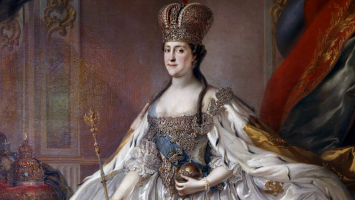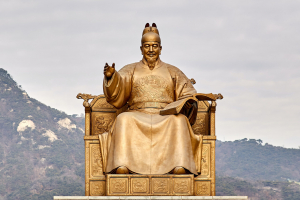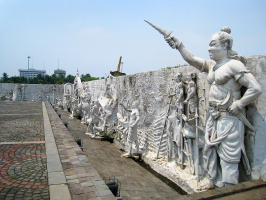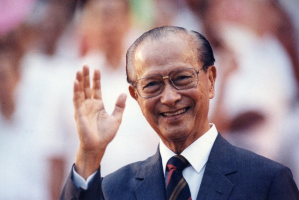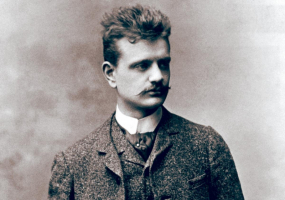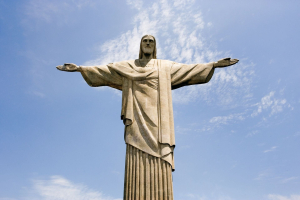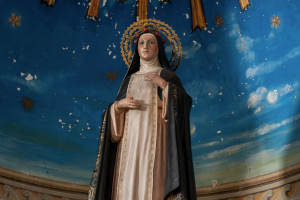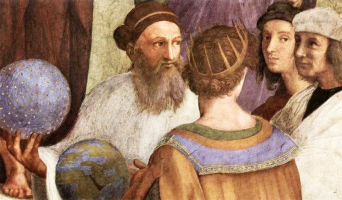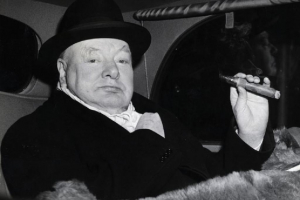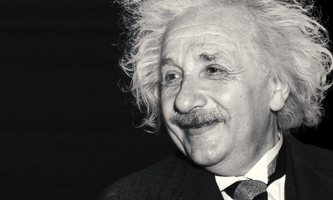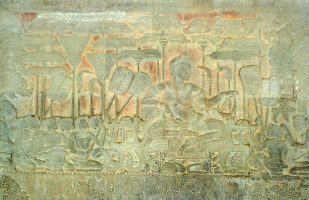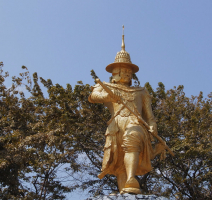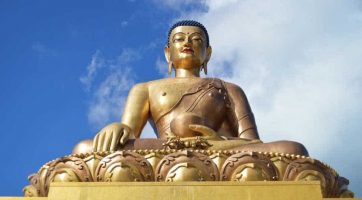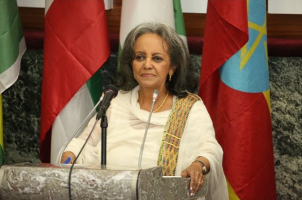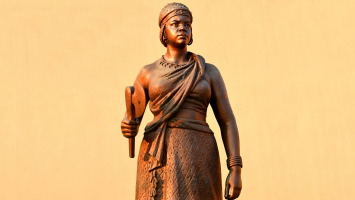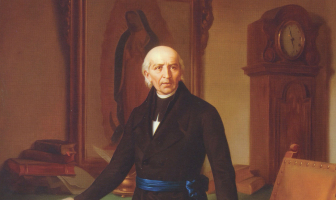Top 10 Most Important Historical Figures In America
This is a list of the most powerful people in American history. This means that the people on this list have had a significant impact on how ordinary people ... read more...live their lives today, as well as how modern society functions. This list includes iconic religious figures, well-known scientists and inventors, and some of the world's most powerful and influential leaders.
-
Abraham Lincoln (February 12, 1809 - April 15, 1865) was the 16th President of the United States from 1861 until his assassination in 1865. Lincoln led the country through the American Civil War, preserving the Union, abolishing slavery, strengthening the federal government, and modernizing the American economy.
Lincoln was born in a log cabin in Kentucky into poverty and raised on the frontier, primarily in Indiana. He educated himself and went on to become a lawyer, Whig Party leader, Illinois state legislator, and United States Congressman from Illinois. In 1849, he returned to his law practice, but he was irritated by the Kansas-Nebraska Act of 1854, which opened up additional lands to slavery. In 1854, he reentered politics as a leader of the new Republican Party, and in the 1858 Senate campaign debates against Stephen Douglas, he reached a national audience. In 1860, Lincoln ran for President and won by sweeping the North. Southern states began seceding from the Union as pro-slavery elements saw his election as a threat to slavery. The newly formed Confederate States of America began seizing federal military bases in the south around this time. The Confederate States of America attacked Fort Sumter, a United States fort in South Carolina, just over a month after Lincoln took office. Following the bombardment, Lincoln called in reinforcements to put down the rebellion and restore the Union.
Lincoln, a moderate Republican, had to navigate a fractious array of factions from both the Democratic and Republican parties. His War Democrats and Radical Republicans allies demanded harsh treatment of the Southern Confederates. Lincoln was despised by anti-war Democrats (dubbed "Copperheads"), and irreconcilable pro-Confederate elements plotted his assassination. He kept the factions in check by taking advantage of their mutual animosity, carefully distributing political patronage, and appealing to the American people. His Gettysburg Address became known as one of the most powerful and influential statements of American national purpose. Lincoln oversaw the war effort's strategy and tactics, including the selection of generals, and implemented a naval blockade of the South's trade. In Maryland, he suspended habeas corpus and avoided British intervention by defusing the Trent Affair. In 1863, he issued the Emancipation Proclamation, which freed slaves in the states "in rebellion." It also instructed the Army and Navy to "recognize and maintain such persons' freedom" and to accept them "into the armed service of the United States." Lincoln also lobbied border states to abolish slavery, and he promoted the Thirteenth Amendment to the United States Constitution, which, when ratified, abolished slavery.
Lincoln ran a successful re-election campaign. He sought to heal the nation's wounds through reconciliation. On April 14, 1865, just days after the surrender of the Confederacy at Appomattox, he was attending a play with his wife Mary at Ford's Theatre in Washington, D.C., when he was fatally shot by Confederate sympathizer John Wilkes Booth. For his wartime leadership and efforts to preserve the Union and abolish slavery, Abraham Lincoln is remembered as a martyr and a national hero. Lincoln is frequently ranked as the greatest president in American history in both popular and scholarly polls.
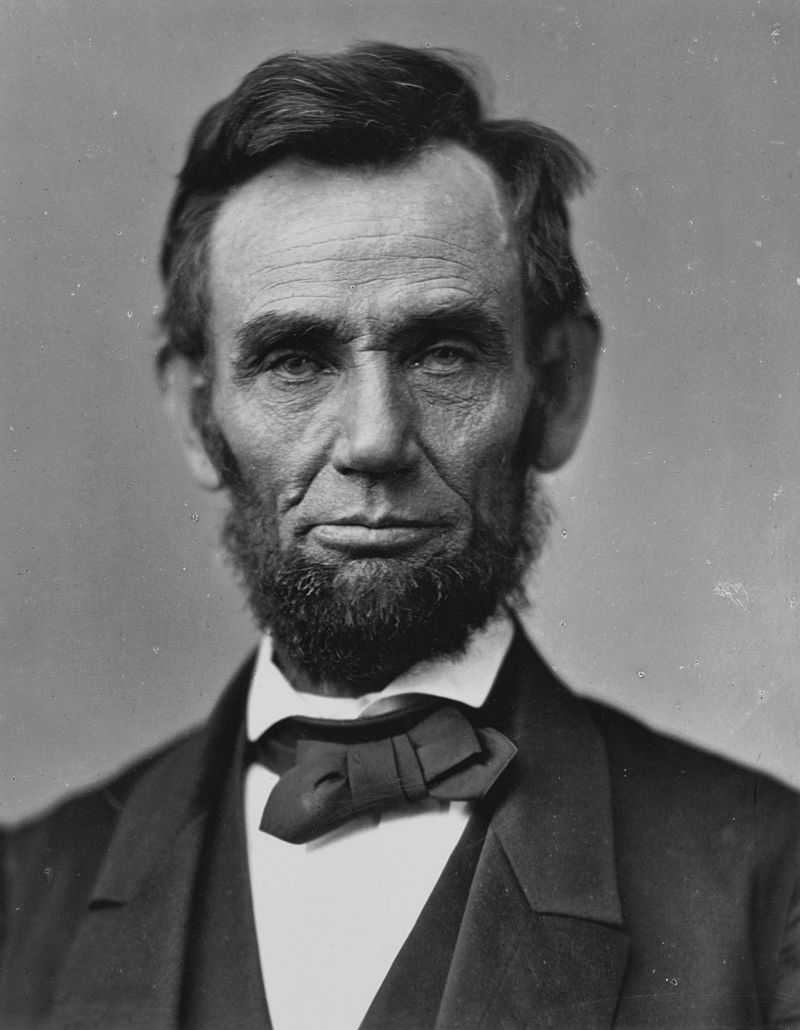
vi.wikipedia.org 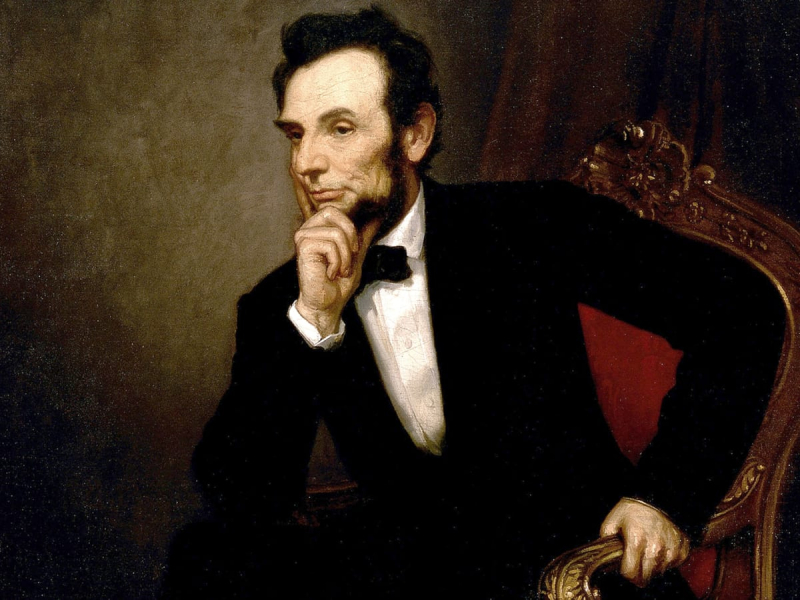
buiphan.net -
George Washington (February 22, 1732 - December 14, 1799) was an American military officer, statesman, and Founding Father who served as the country's first president from 1789 to 1797. As commander of the Continental Army, Washington led the Patriot forces to victory in the American Revolutionary War and served as president of the Constitutional Convention of 1787, which established the United States Constitution and the American federal government. Washington has been dubbed the "Father of the Nation" for his exemplary leadership during the country's formative years.
From 1749 to 1750, Washington held the position of official surveyor of Culpeper County, Virginia. During the French and Indian War, he received his initial military training (as well as a command with the Virginia Regiment). Later, he was elected to the Virginia House of Burgesses and appointed as a delegate to the Continental Congress, where he was appointed Commanding General of the Continental Army. During the American Revolutionary War, he commanded American forces (allied with France) in the defeat and surrender of the British at the Siege of Yorktown. After the Treaty of Paris was signed in 1783, he resigned his commission.
Washington was critical in the adoption and ratification of the United States Constitution. He was then unanimously elected president by the Electoral College twice. As president, he established a strong, well-funded national government while remaining impartial in the cabinet rivalry between Thomas Jefferson and Alexander Hamilton. During the French Revolution, he declared neutrality while supporting the Jay Treaty. He established long-lasting precedents for the presidency, such as using the title "Mr. President" and swearing the Oath of Office on the Bible. His Farewell Address is widely regarded as the most authoritative statement on republicanism.
Washington had a complicated relationship with slavery as a slave owner. During his lifetime, he had over 577 slaves who were forced to work on his farms and wherever he lived, including the President's House in Philadelphia. As president, he signed legislation that both protected and limited slavery. His will stated that one of his slaves, William Lee, would be freed upon his death, and that the other 123 slaves would work for him and be freed upon his wife's death. She set them free during her lifetime to remove the incentive to hasten her demise.
He attempted to integrate Native Americans into Anglo-American culture. During the Revolutionary War and the Northwest Indian War, he did, however, wage military campaigns against hostile Native American nations. He was a member of the Anglican Church and the Freemasons, and in his roles as general and president, he advocated for broad religious freedom. When he died, Henry "Light-Horse Harry" Lee praised him as "first in war, first in peace, and first in the hearts of his countrymen".
Washington has been memorialized by monuments, a federal holiday, various media depictions, geographical locations, including the national capital, the State of Washington, stamps, and currency, and he is regarded as one of the greatest U.S. presidents by many scholars and ordinary Americans alike. Washington was posthumously promoted to General of the Armies of the United States, the highest rank in the United States Army, in 1976.
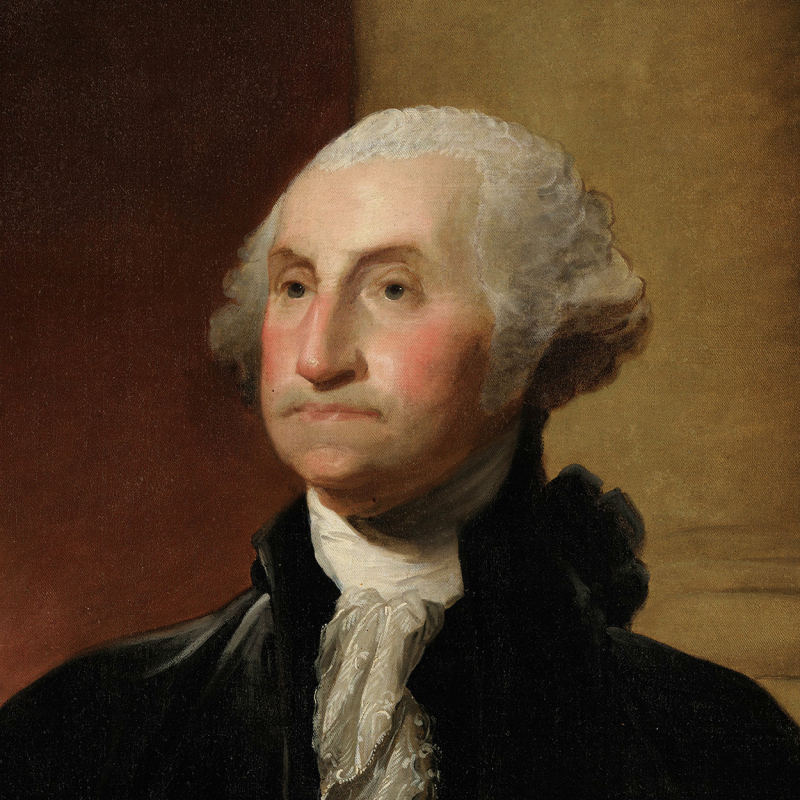
vietwiki.vn 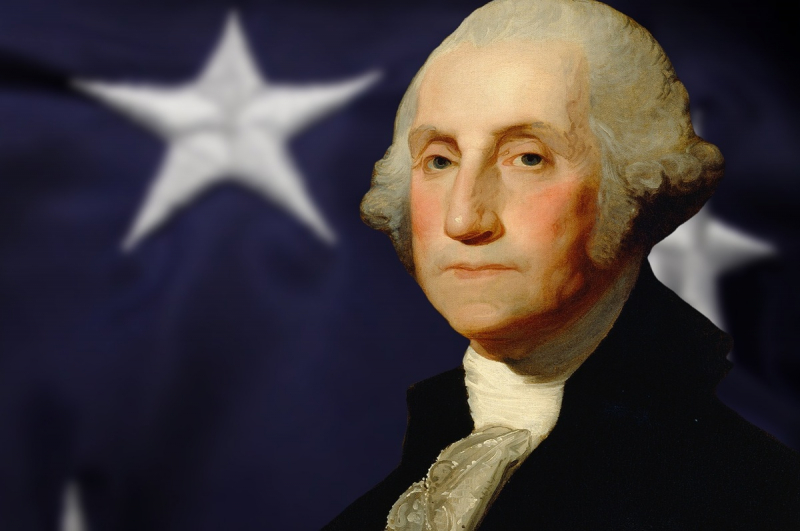
vnexpress.net -
Benjamin Franklin FRS FRSA FRSE (January 17, 1706 - April 17, 1790) was a writer, scientist, inventor, statesman, diplomat, printer, publisher, and political philosopher. Franklin was one of the United States' Founding Fathers, a drafter and signer of the United States Declaration of Independence, and the first Postmaster General of the United States.
After serving as Philadelphia postmaster for many years, Benjamin Franklin was promoted to deputy postmaster-general for the British colonies on August 10, 1753, allowing him to establish the first national communications network. He was involved in local, colonial, and state politics, as well as national and international affairs. He was governor of Pennsylvania from 1785 to 1788. He initially owned and traded slaves, but by the late 1750s, he had become an abolitionist and advocated for education and the integration of African Americans into American society.
Franklin's life and legacy of scientific and political achievement, as well as his status as one of America's most influential Founding Fathers, have been honored more than two centuries after his death on the $100 bill, warships, and the names of many towns, counties, educational institutions, and corporations, as well as numerous cultural references and an Oval Office portrait. Franklin wrote or received over 30,000 letters and other documents during his lifetime, which were published as The Papers of Benjamin Franklin by the American Philosophical Society and Yale University.
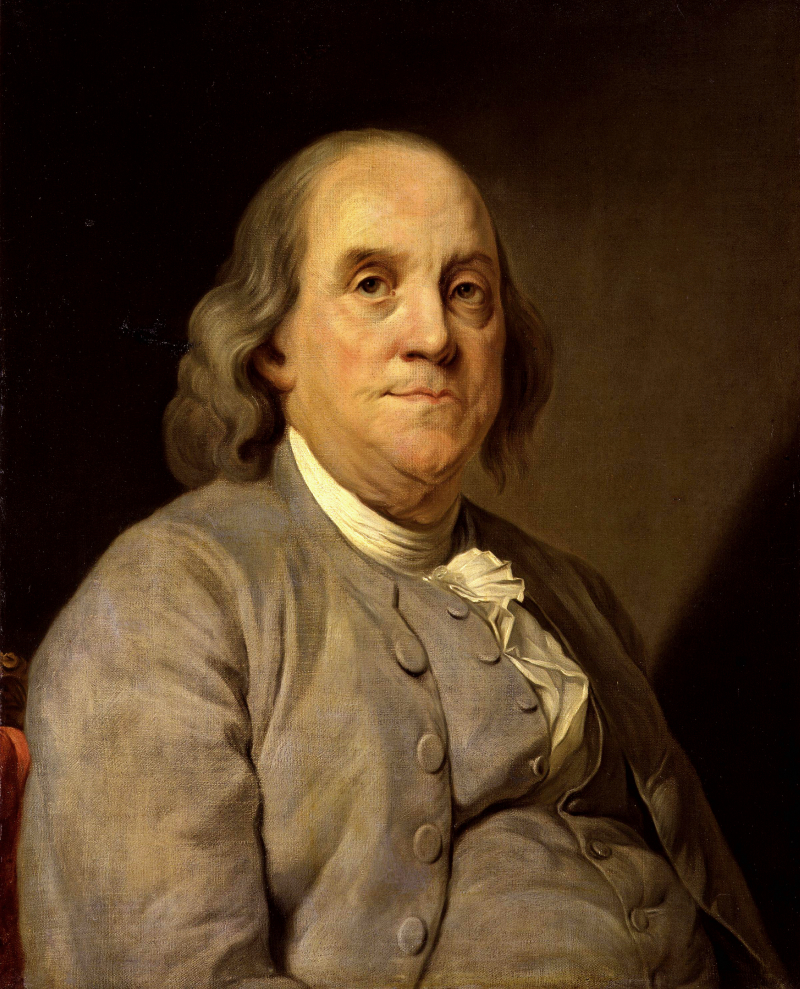
cdo.wikipedia.org 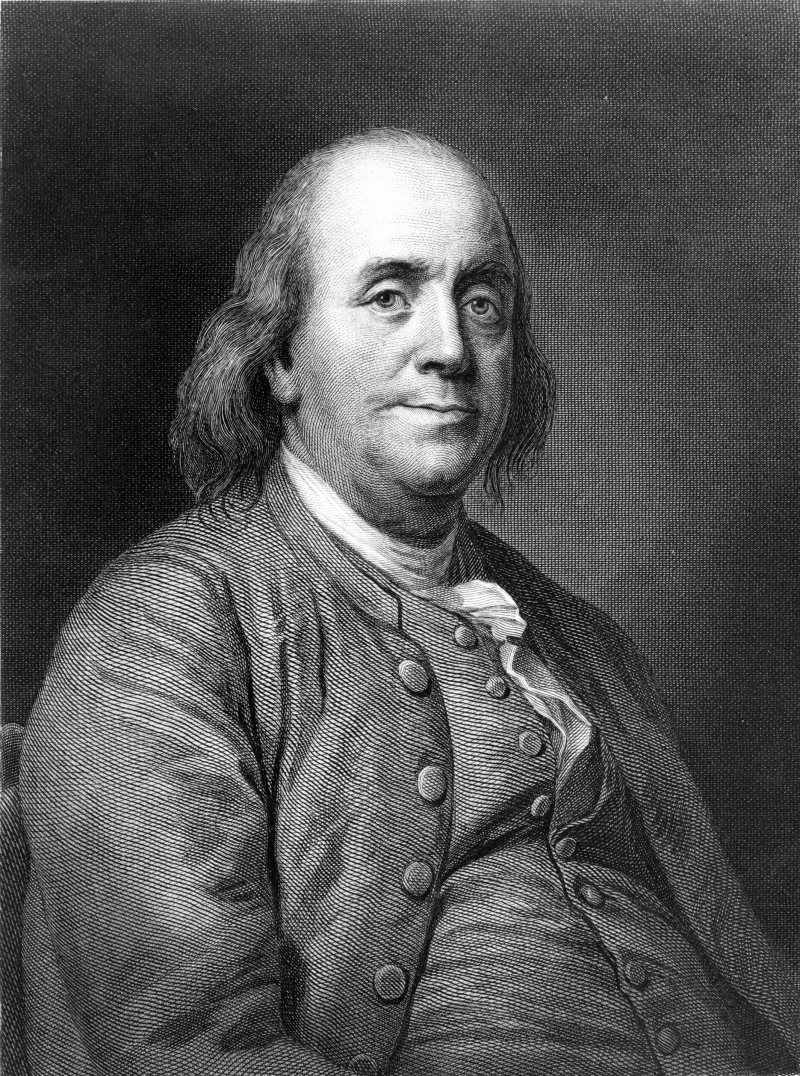
vi.m.wikipedia.org -
Martin Luther King Jr. (January 15, 1929 - April 4, 1968) was an American Baptist minister and activist who was a key figure in the civil rights movement from 1955 until his assassination in 1968. King, the son of early civil rights activist and minister Martin Luther King Sr., was an African American church leader who advanced civil rights for people of color in the United States through nonviolence and civil disobedience. He led targeted, nonviolent resistance against Jim Crow laws and other forms of discrimination, inspired by his Christian beliefs and Mahatma Gandhi's nonviolent activism. He is among the most important historical figures in America.
King marched and led marches for voting rights, desegregation, labor rights, and other civil rights. He oversaw the Montgomery bus boycott in 1955 and later became the Southern Christian Leadership Conference's first president (SCLC). He led the unsuccessful Albany Movement in Albany, Georgia, as president of the SCLC, and helped organize some of the nonviolent protests in Birmingham, Alabama, in 1963. King led the 1963 March on Washington, where he delivered his "I Have a Dream" speech on the steps of the Lincoln Memorial. The Civil Rights Act of 1964, the Voting Rights Act of 1965, and the Fair Housing Act of 1968 were pivotal legislative victories for the civil rights movement.
The SCLC used nonviolent protest tactics with some success by strategically selecting protest methods and locations. Several dramatic standoffs occurred with segregationist authorities, who occasionally became violent. King was imprisoned several times. J. Edgar Hoover, Director of the Federal Bureau of Investigation (FBI), saw King as a radical and subjected him to the FBI's COINTELPRO program (Counter Intelligence Program) beginning in 1963. FBI agents spied on him, secretly recorded him, and investigated him for possible communist ties. In 1964, the FBI sent King a threatening anonymous letter, which he mistook for an attempt to force him to commit suicide.
On October 14, 1964, King was awarded the Nobel Peace Prize for his nonviolent resistance to racial inequality. He helped organize two of the three Selma to Montgomery marches in 1965. In his final years, he broadened his opposition to poverty, capitalism, and the Vietnam War. When King was assassinated on April 4, 1968, in Memphis, Tennessee, he was planning a national occupation of Washington, D.C. called the Poor People's Campaign. His death sparked national mourning as well as riots in a number of American cities. In 1977, King was posthumously awarded the Presidential Medal of Freedom, and in 2003, the Congressional Gold Medal. Beginning in 1971, cities and states across the United States declared Martin Luther King Jr. Day a holiday; the holiday was enacted at the federal level by legislation signed by President Ronald Reagan in 1986. Hundreds of streets in the United States have been renamed in his honor, and Washington State's most populous county has been renamed after him. The Martin Luther King Jr. Memorial on Washington's National Mall was dedicated in 2011.
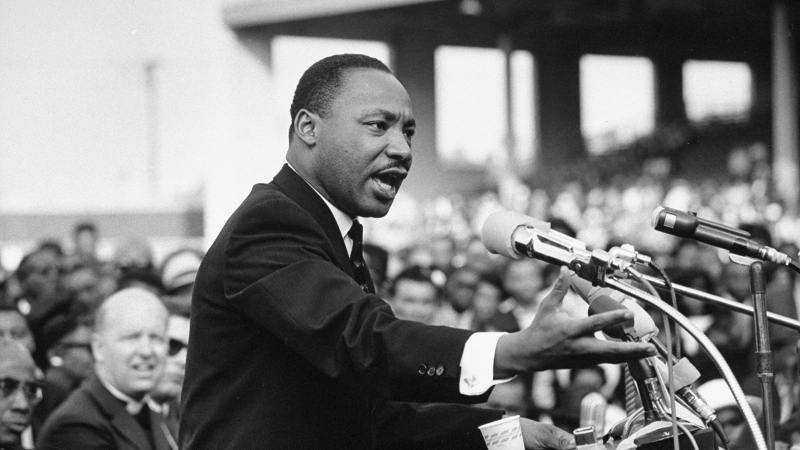
unacuhcp.org 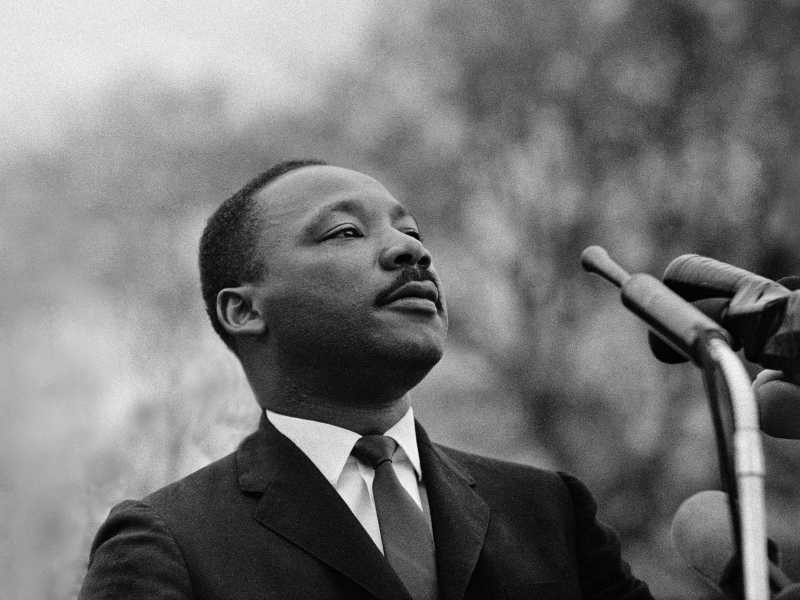
thoughtco.com -
Thomas Jefferson (April 13, 1743 - July 4, 1826) was an American statesman, diplomat, lawyer, architect, philosopher, and Founding Father who served as the country's third president from 1801 to 1809. He had previously served as John Adams' second vice president and George Washington's first secretary of state. Jefferson, the Declaration of Independence's principal author, was a proponent of democracy, republicanism, and individual rights, inspiring American colonists to secede from the Kingdom of Great Britain and form a new nation. At the state, national, and international levels, he produced formative documents and decisions.
Jefferson represented Virginia in the Continental Congress that adopted the Declaration of Independence during the American Revolution. As a Virginia legislator, he drafted a religious freedom bill. During the Revolutionary War, he was the second Governor of Virginia, serving from 1779 to 1781. Jefferson was appointed as the United States Minister to France in 1785, and then as the country's first Secretary of State under President George Washington from 1790 to 1793. During the formation of the First Party System, Jefferson and James Madison founded the Democratic-Republican Party to oppose the Federalist Party. In 1798 and 1799, he and Madison collaborated on the controversial Kentucky and Virginia Resolutions, which sought to strengthen states' rights by repealing the federal Alien and Sedition Acts.
While serving in the Continental Congress and co-writing the Declaration of Independence, Jefferson and Federalist John Adams became friends as well as political rivals. In the 1796 presidential election, Jefferson finished second, which, according to electoral procedure at the time, made him Adams' vice president. In 1800, Jefferson challenged Adams again and won the presidency. Jefferson and Adams eventually reconciled after Jefferson's presidency, and they corresponded for fourteen years.
As president, Jefferson fought Barbary pirates and aggressive British trade policies to protect the nation's shipping and trade interests. Beginning in 1803, he promoted a western expansionist policy with the Louisiana Purchase, which more than doubled the country's claimed land area. To make way for settlement, Jefferson began the process of removing Indian tribes from newly acquired territory. His administration reduced military forces as a result of peace talks with France. He was re-elected in 1804, but his second term was marred by domestic issues, such as the trial of former Vice President Aaron Burr. When Jefferson enacted the Embargo Act in response to British threats to American shipping in 1807, it reduced American foreign trade. Jefferson also signed the Act Prohibiting the Importation of Slaves the same year.
While Jefferson was primarily a plantation owner, lawyer, and politician, he was also a skilled surveyor, mathematician, horticulturist, and mechanic. In addition, he was a Palladian architect. Jefferson's keen interest in religion and philosophy led to his presidency of the American Philosophical Society; he shied away from organized religion but was influenced by Christianity, Epicureanism, and deism. Jefferson was a staunch opponent of fundamental Christianity, denying Christ's divinity. Jefferson was a philologist who spoke several languages. He was an avid letter writer who corresponded with many notable figures, including Edward Carrington, John Taylor of Caroline, and James Madison. Notes on the State of Virginia (1785), one of his books, is regarded as the most important American book published before 1800. Jefferson advocated for the Enlightenment's ideals, values, and teachings.
Jefferson owned over 600 slaves over the course of his life. Since Jefferson's time, there has been much debate about his relationship with Sally Hemings, a mixed-race enslaved woman who was his late wife's half-sister. According to DNA testing of Jefferson's and Hemings' descendants in 1998, as well as documentary and statistical evidence and oral history, Jefferson fathered at least six children with Hemings, four of whom survived to adulthood. Evidence suggests that Jefferson and Hemings began their relationship in Paris, sometime after she arrived there at the age of 14 or 15, when Jefferson was 44. She was pregnant by the time she returned to the United States at the age of 16 or 17.
Jefferson established the University of Virginia after leaving public office. Both he and John Adams died on July 4, 1826, the 50th anniversary of the United States' independence. Jefferson's public achievements are generally lauded by presidential scholars and historians, including his advocacy of religious freedom and tolerance in Virginia, his peaceful acquisition of the Louisiana Territory from France without war or controversy, and his ambitious and successful Lewis and Clark Expedition. Jefferson's personal involvement with slavery has been criticized by some modern historians. Jefferson is regarded as one of the top ten presidents in American history.
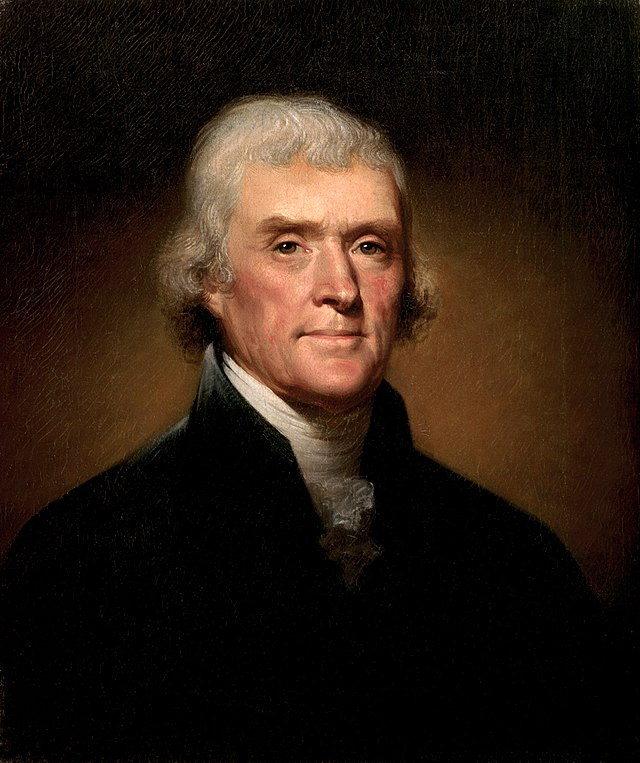
vi.wikipedia.org 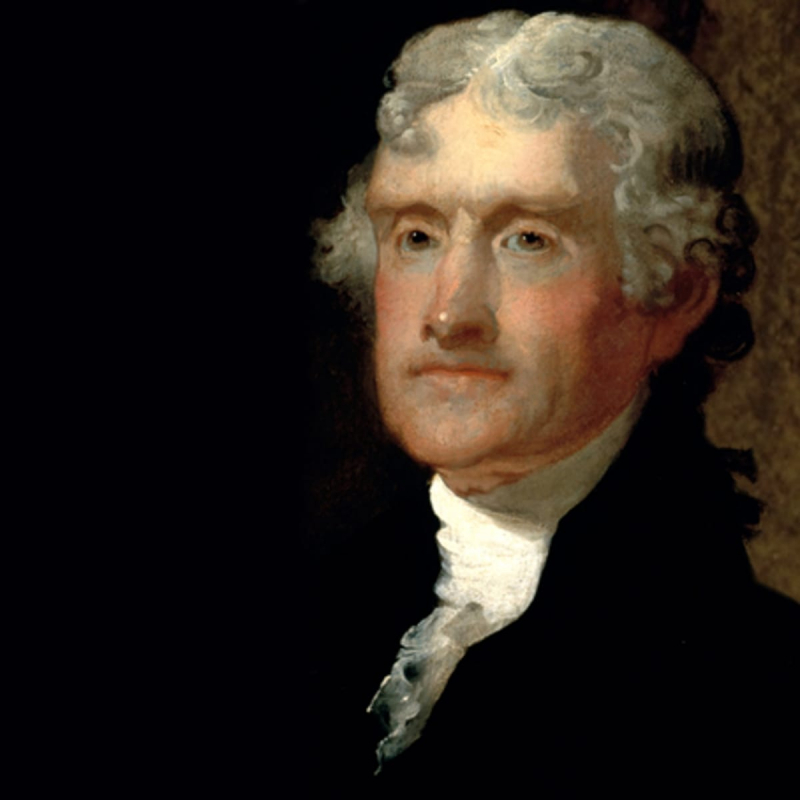
history.com -
Alexander Hamilton (January 11, 1755 or 1757 - July 12, 1804) was an American revolutionary, statesman, and the country's Founding Father. He was the founder of the Federalist Party, the nation's financial system, the United States Coast Guard, and the New York Post newspaper, as well as an influential interpreter and promoter of the United States Constitution. As the first Secretary of the Treasury, Hamilton was the primary architect of President George Washington's economic policies. He led the federal government's funding of the states' American Revolutionary War debts, as well as the establishment of the country's first two de facto central banks (the Bank of North America and the First Bank of the United States), a tariff system, and the restoration of friendly trade relations with Britain. His vision included a strong central government led by a strong executive branch, a strong commercial economy, manufacturing support, and a strong national defense.
Hamilton was born in Charlestown, Nevis, out of wedlock. He was orphaned as a child and raised by a wealthy merchant. Local patrons sent him to New York to further his education when he was in his teens. His opinion pieces in support of the Continental Congress were published under a pen name while he was a student, and he also addressed crowds on the subject. As the American Revolutionary War began, he joined the militia. He saw action in the New York and New Jersey campaigns as an artillery officer in the new Continental Army. In 1777, he became a senior aide to Commander in Chief General George Washington, but he returned to field command in time for a pivotal action that secured victory at the Siege of Yorktown, effectively bringing the war to an end.
Following the war, he was elected to the Congress of the Confederation as a representative from New York. Before returning to politics, he resigned to practice law and establish the Bank of New York. Hamilton was a leader in the effort to replace the Articles of Confederation's weak confederal government; he led the Annapolis Convention in 1786, which prompted Congress to call a Constitutional Convention in Philadelphia, where he later served as a delegate from New York. He contributed to the ratification of the Constitution by writing 51 of the 85 installments of The Federalist Papers, which are still considered one of the most important references for constitutional interpretation.
As a trusted member of President Washington's first cabinet, Hamilton oversaw the Treasury Department. He is still the youngest cabinet member in the United States since the founding of the Republic. Hamilton successfully argued that the Constitution's implied powers provided the legal authority to fund the national debt, assume state debts, and establish the government-backed Bank of the United States (i.e. the First Bank of the United States). These programs were primarily funded by an import tariff, and later by a contentious whiskey tax. He was opposed to the administration's involvement with the series of insecure French revolutionary governments. The Federalist Party was founded on Hamilton's ideas, which were opposed by the Democratic-Republican Party led by Thomas Jefferson and James Madison.
He returned to the practice of law in New York in 1795. Under President John Adams, he called for mobilization against French First Republic military aggression in 1798-99, and was commissioned Commanding General of the United States Army, which he reconstituted, modernized, and prepared for war. The army saw no combat in the Quasi-War, which was fought entirely at sea, and Hamilton was outraged by Adams' diplomatic approach to the French crisis. In 1800, his opposition to Adams' re-election contributed to the Federalist Party's defeat. Jefferson and Aaron Burr tied for the presidency in the electoral college, and Hamilton helped to defeat Burr, whom he found unprincipled, and to elect Jefferson despite philosophical differences.
Hamilton continued his legal and business activities in New York City, and was active in ending the legality of the international slave trade. In 1804, Vice President Burr ran for governor of New York, and Hamilton campaigned against him as unworthy. Burr took offense and challenged Hamilton to a duel on July 11, 1804, in which Burr shot and mortally wounded Hamilton, who died the next day.
Hamilton is widely regarded as an astute and intellectually brilliant administrator, politician, and financier, albeit one who can be impulsive at times. His ideas are widely regarded as laying the groundwork for American government and finance. Now he is regarded as one of the most important historical figures in America.
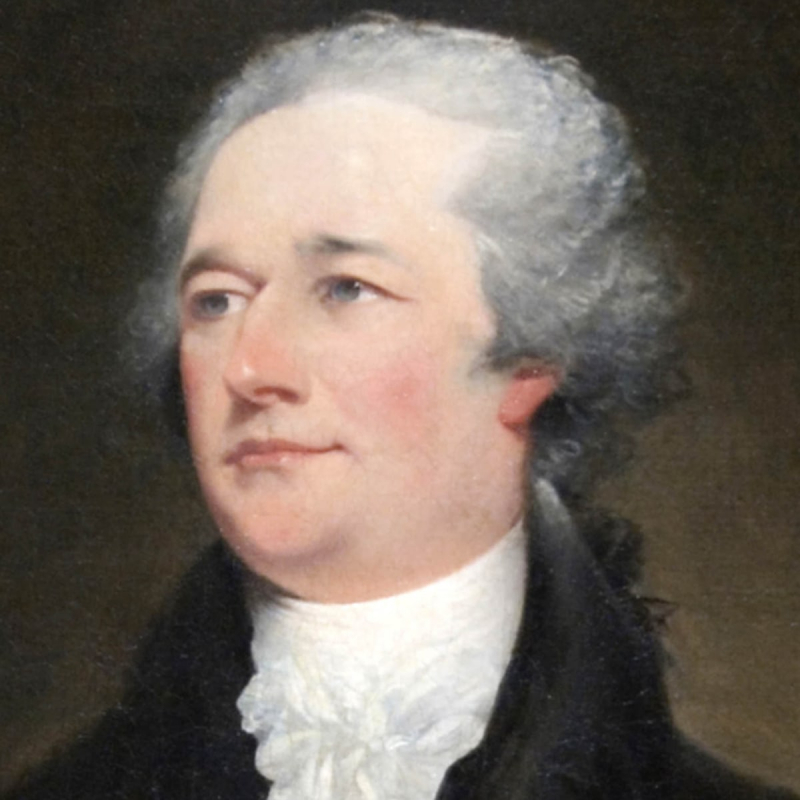
binhminhphat.com 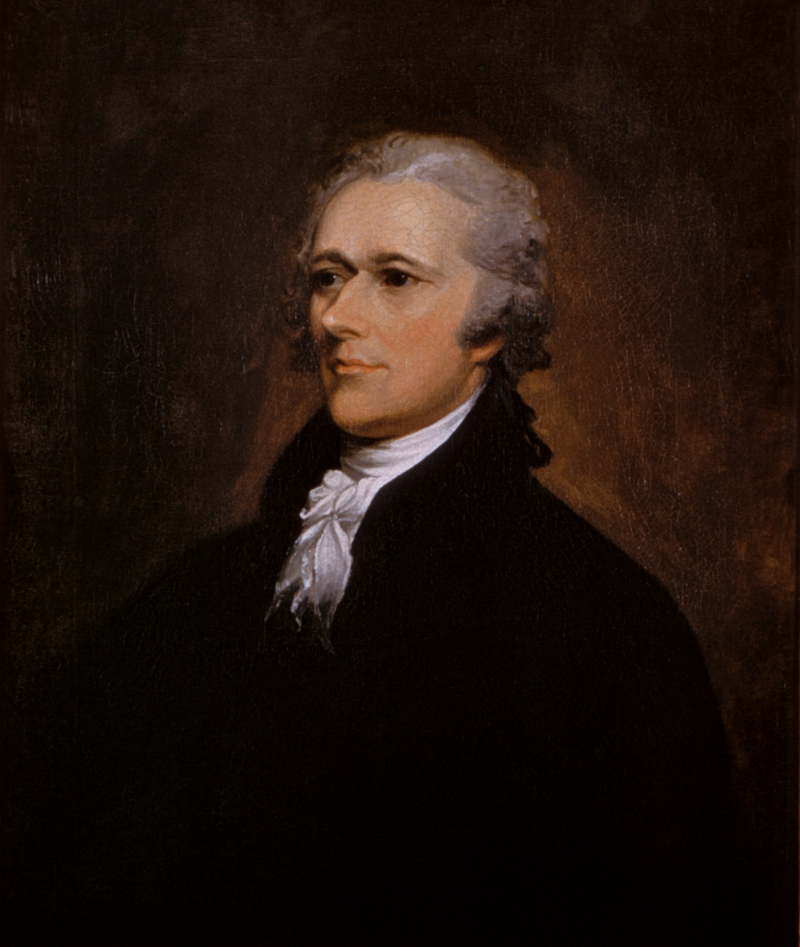
binhminhphat.com -
Theodore Roosevelt Jr. (October 27, 1858 - January 6, 1919), also known as Teddy or by his initials T. R., was the 26th President of the United States from 1901 to 1909. He previously served as President William McKinley's 25th vice president from March to September 1901, as well as the 33rd governor of New York from 1899 to 1900. Following McKinley's assassination, Roosevelt emerged as the Republican Party's leader and became a driving force for anti-trust and Progressive policies.
As a sickly child with crippling asthma, Theodore Roosevelt overcame his health issues by adopting an active lifestyle. He combined his exuberant personality and diverse interests and accomplishments into a "cowboy" persona defined by rugged masculinity. Before attending Harvard, he was home-schooled and began a lifelong career as a naturalist. His book The Naval War of 1812 (1882) established him as a knowledgeable historian and popular author. When he entered politics, he became the leader of the Republican reform faction in New York's state legislature. His wife and mother died on the same night, leaving him psychologically devastated. He was able to recover by purchasing and operating a cattle ranch in the Dakotas. Under President William McKinley, he served as Assistant Secretary of the Navy and helped plan the highly successful naval war against Spain in 1898. He resigned to help form and lead the Rough Riders, a unit that gained fame for fighting the Spanish army in Cuba. In 1898, he was elected governor of New York as a war hero. The New York state party leadership despised McKinley's ambitious agenda and persuaded him to name Roosevelt as his running mate in the 1900 election. Roosevelt ran an aggressive campaign, and the McKinley-Roosevelt ticket won a landslide victory on a platform of victory, peace, and prosperity.
After McKinley was assassinated in September 1901, Roosevelt assumed the presidency at the age of 42. He is still the youngest person to hold the office of President of the United States. Roosevelt was a progressive movement leader who promoted his "Square Deal" domestic policies, which promised the average citizen fairness, breaking of trusts, railroad regulation, and pure food and drugs. To preserve the nation's natural resources, he prioritized conservation and established national parks, forests, and monuments. He focused his foreign policy on Central America, where he began construction on the Panama Canal. He increased the size of the Navy and sent the Great White Fleet on a world tour to demonstrate American naval power. His successful efforts to end the Russo-Japanese War earned him the Nobel Peace Prize in 1906. In 1904 Roosevelt was re-elected to a full term and continued to advocate for progressive policies. In the 1908 presidential election, he groomed his close friend William Howard Taft to succeed him.
Roosevelt became dissatisfied with Taft's brand of conservatism and unsuccessfully sought the Republican presidential nomination in 1912. He was unsuccessful, so he left and founded the Progressive Party. He ran in the presidential election of 1912, and the split allowed the Democratic nominee, Woodrow Wilson, to win. After his defeat, Roosevelt led a two-year expedition to the Amazon basin, where he nearly died from tropical disease. During WWI, he chastised Wilson for keeping the country out of the war, and his offer to lead volunteers to France was turned down. In 1920, he considered running for president again, but his health deteriorated. He passed away in 1919. Historians and political scientists rank him as one of the greatest presidents in American history, according to polls.
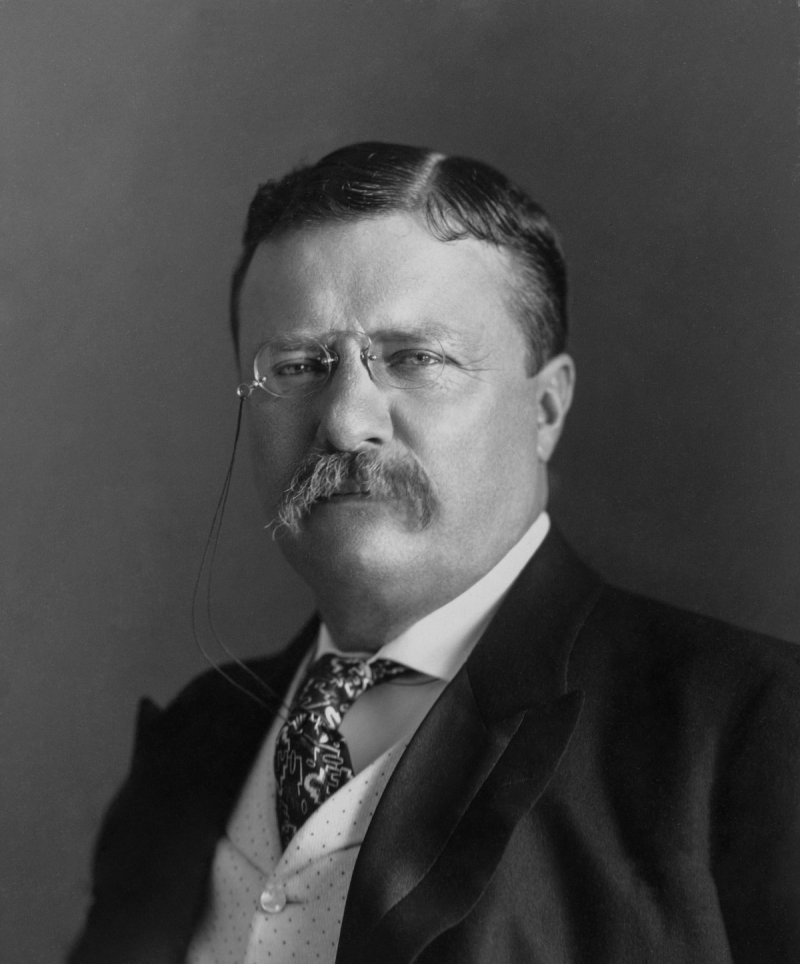
vi.wikipedia.org 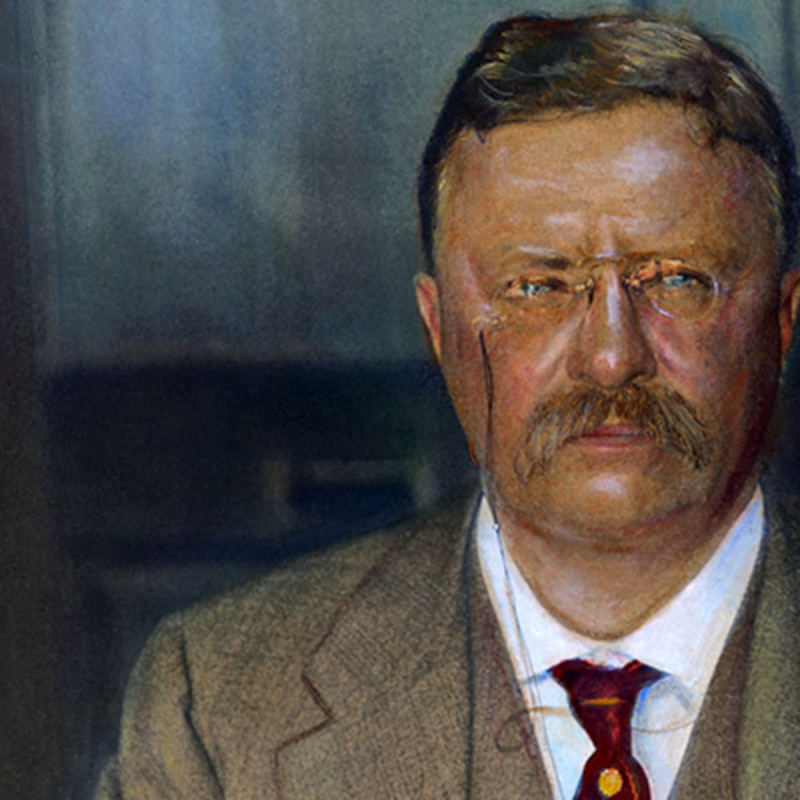
history.com -
Henry Ford (July 30, 1863 - April 7, 1947) was an American industrialist, business magnate, and the inventor of the assembly line technique of mass production. By designing the first automobile that middle-class Americans could afford, he transformed the automobile from an expensive luxury into an affordable mode of transportation that profoundly influenced the landscape of the twentieth century.
The Ford Model T automobile, which he introduced, revolutionized transportation and American industry. He rose to become one of the world's richest and most well-known people as the owner of Ford Motor Company. He is credited with "Fordism," the mass production of low-cost goods combined with high worker wages. Ford had a global vision, and he saw consumerism as the key to achieving peace. His unwavering commitment to systematically lowering costs resulted in numerous technical and business innovations, including a franchise system that established dealerships in major cities across North America and on six continents. Ford bequeathed the majority of his vast fortune to the Ford Foundation and arranged for his family to retain permanent control of it.
Among the most important historical figures in America, Ford was also well-known for his pacifism during World War I, and for later promoting antisemitic content, such as The Protocols of the Elders of Zion, through his newspaper The Dearborn Independent and the book The International Jew.
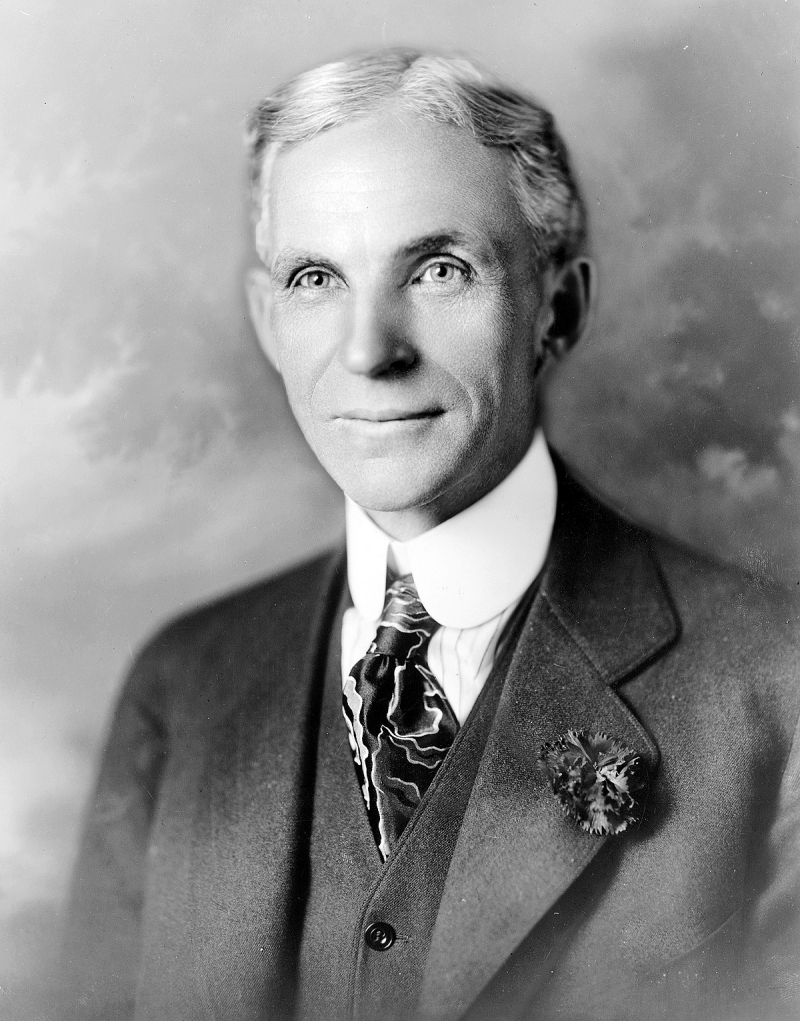
vi.wikipedia.org 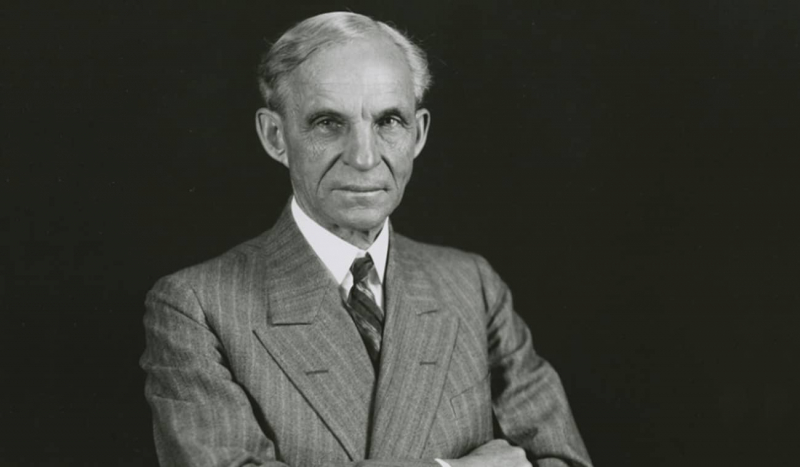
nienlich.vn -
Franklin Delano Roosevelt (January 30, 1882 - April 12, 1945) was the President of the United States from 1933 to 1945, was an American politician and lawyer who served as the 32nd President of the United States from 1933 until his death in 1945. He won four presidential elections as a member of the Democratic Party and became a central figure in world events during the first half of the twentieth century. During the majority of the Great Depression, Roosevelt led the federal government, implementing his New Deal domestic agenda in response to the worst economic crisis in American history. As the dominant leader of his party, he established the New Deal Coalition, which defined modern liberalism in the United States for the next three decades. World War II dominated his third and fourth terms, which ended shortly after he died in office.
Born in Hyde Park, New York, to the prominent Roosevelt family, he graduated from both Groton School and Harvard College, as well as Columbia Law School, which he left after passing the bar exam to practice law in New York City. Eleanor Roosevelt, his fifth cousin once removed, married him in 1905. They had six children, five of whom lived to adulthood. In 1910, he was elected to the New York State Senate, and during World War I, he served as Assistant Secretary of the Navy under President Woodrow Wilson. On the Democratic Party's national ticket in 1920, Roosevelt was James M. Cox's running mate, but Cox was defeated by Republican Warren G. Harding. Roosevelt contracted a paralytic illness, thought to be polio at the time, in 1921, and his legs became permanently paralyzed. Roosevelt established a polio rehabilitation center in Warm Springs, Georgia, while attempting to recover from his condition. Roosevelt returned to public life after being elected governor of New York in 1928, despite his inability to walk unaided. He served as governor from 1929 to 1933, promoting programs to combat the United States' economic crisis.
Roosevelt defeated Republican incumbent Herbert Hoover in the 1932 presidential election and took office in the midst of the Great Depression. He oversaw unprecedented federal legislative productivity during the first 100 days of the 73rd United States Congress. Roosevelt advocated for the establishment of programs aimed at providing relief, recovery, and reform. Within his first year in office, he began enacting these policies through a series of executive orders and federal legislation known as the New Deal. Many New Deal programs, such as the National Recovery Administration, provided assistance to the unemployed. Farmers were helped by several New Deal programs and federal laws, such as the Agricultural Adjustment Act. Roosevelt also implemented significant regulatory reforms in finance, communications, and labor. In addition to the economy, Roosevelt sought a compromise on Prohibition with the Democratic Party's urban and rural wings. Roosevelt implemented the Beer Permit Act of 1933 and enforced the 21st amendment after campaigning on a platform to repeal it. As part of the New Deal, alcohol tax revenue would be used to fund public works projects. Roosevelt frequently used radio to address the American people directly, delivering 30 "fireside chat" radio addresses during his presidency and becoming the first American president to be televised. During Roosevelt's first term, the economy improved rapidly, and he was re-elected in 1936 with one of the most lopsided victories in American history.
Despite Roosevelt supporters' enthusiasm for the New Deal, from 1936 onwards, New Deal legislation was frequently overturned by the US Supreme Court, which maintained a conservative bias. Because of the disagreement between Roosevelt and the Court, Roosevelt advocated for the Judicial Procedures Reform Bill of 1937 (or "court packing plan"), which would have increased the size of the Supreme Court. The newly formed bipartisan Conservative Coalition, which also sought to prevent further New Deal legislation, blocked the bill. During the 1937-1938 recession, Roosevelt launched a rhetorical campaign in the United States against big business and monopoly power. The Securities and Exchange Commission, the National Labor Relations Act, the Federal Deposit Insurance Corporation, Social Security, and the Fair Labor Standards Act were also major 1930s legislation and agencies established by Roosevelt.
Roosevelt was re-elected for a third term in 1940, making him the only president of the United States to serve for more than two terms. By 1939, another World War was looming, prompting the United States to respond by enacting a slew of laws affirming neutrality and opposing intervention. Despite this, President Roosevelt provided China, the United Kingdom, and, eventually, the Soviet Union with strong diplomatic and financial support. Roosevelt obtained a congressional declaration of war against Japan following the Japanese attack on Pearl Harbor on December 7, 1941, which he described as "a date that will live in infamy." Japan's allies, Nazi Germany and Fascist Italy, declared war on the United States on December 11, 1941. As a result, the United States formally joined the Allies and entered the European theater of war. With the help of his top aide Harry Hopkins and widespread national support, he led the Allied Powers against the Axis Powers alongside British Prime Minister Winston Churchill, Soviet General Secretary Joseph Stalin, and Chinese Generalissimo Chiang Kai-shek. Roosevelt oversaw the mobilization of the American economy to support the war effort and implemented a Europe-first strategy, launching the Lend-Lease program and prioritizing the defeat of Germany over that of Japan. His administration oversaw the building of The Pentagon, spearheaded the development of the world's first atomic bomb, and collaborated with other Allied leaders to lay the groundwork for the United Nations and other postwar institutions. During his wartime leadership, the United States rose to global superpower status.
In the 1944 presidential election, Roosevelt was re-elected on a post-war recovery platform. His physical health began to deteriorate during the later war years, and he died on April 12, 1945, less than three months into his fourth term. Vice President Harry S. Truman assumed the presidency and oversaw the Axis powers' acceptance of surrender. Several of Roosevelt's actions have been heavily criticized since his death, including the relocation and internment of Japanese Americans in concentration camps. Nonetheless, scholars, political scientists, and historians consistently rank him as one of the greatest presidents in American history.
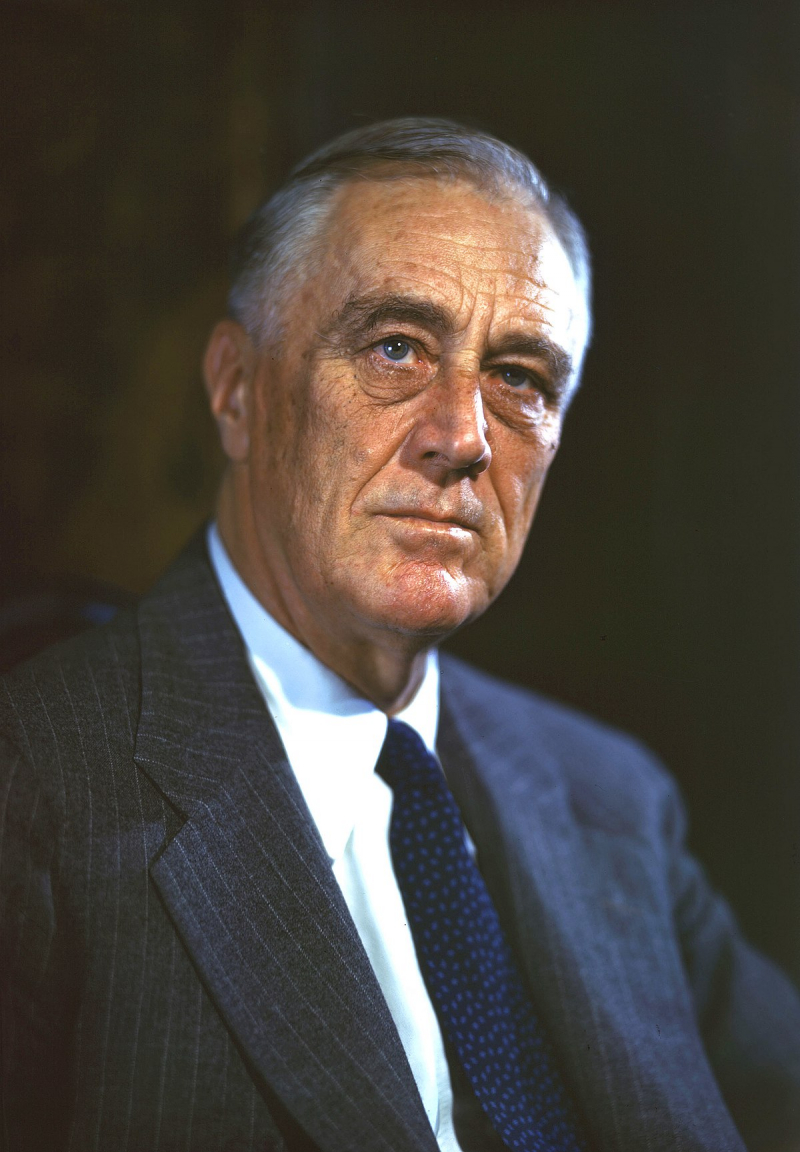
en.wikipedia.org 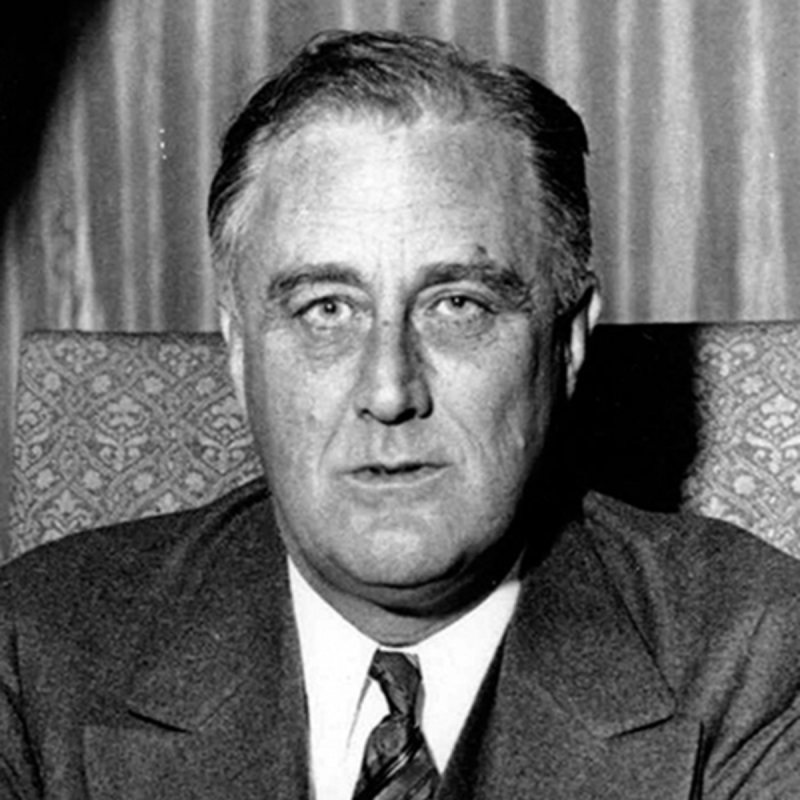
danviet.vn -
Ulysses S. Grant (April 27, 1822 - July 23, 1885) was an American military officer and politician who served as the 18th President of the United States from 1869 to 1877. He led the Union Army to victory in the American Civil War as Commanding General in 1865, and then briefly served as Secretary of War. Later, as president, Grant was a successful civil rights executive, signing the bill that established the Justice Department and collaborating with Radical Republicans to protect African Americans during Reconstruction.
Grant, who was raised in Ohio, had an exceptional ability with horses. Grant was admitted to West Point and graduated 21st in his class in 1843, serving with distinction in the Mexican-American War. He married Julia Dent in 1848, and the couple had four children. In 1854, Grant resigned from the army and returned to his family, but he lived in poverty. After the American Civil War began in 1861, he joined the Union Army and rose to prominence by winning several early Union victories on the Western Theater. In 1863, he led the Vicksburg campaign, which gained control of the Mississippi River, dealing the Confederacy a serious strategic blow and splitting it in two. Following his victory at Chattanooga, President Abraham Lincoln promoted him to lieutenant general. Grant fought Robert E. Lee for thirteen months, during the high-casualty Overland Campaign and at Petersburg. Grant defeated Lee at Appomattox after he fled Petersburg. Lee formally surrendered to Grant on April 9, 1865. Lincoln was assassinated a week later, and he was succeeded by President Andrew Johnson, who promoted Grant to General of the Army in 1866. Later, Grant openly disagreed with Johnson on Reconstruction policies; Grant used the Reconstruction Acts, which were passed despite Johnson's veto, to enforce civil rights for newly freed African Americans.
Grant, a war hero drawn in by his sense of duty, was nominated unanimously by the Republican Party and elected president in 1868. As president, Grant helped to stabilize the postwar national economy, advocated for Congressional Reconstruction, the 15th Amendment, and crushed the Ku Klux Klan. The Union was completely restored under Grant. He appointed African Americans and Jews to prominent federal positions. Grant established the first Civil Service Commission in 1871, advancing the civil service more than any previous president. In the presidential election of 1872, the Liberal Republicans and Democrats united behind Grant's opponent, but Grant was easily reelected. Grant's Native American policy was to integrate Indians into White culture; the Great Sioux War took place during his presidency. Grant's foreign policy was largely peaceful, with the Alabama Claims against the United Kingdom skillfully resolved. The Senate, however, rejected his prized Caribbean Dominican Republic annexation.
The Grant administration is famous for prominent scandals such as the Gold Ring and the Whiskey Ring. Modern scholarship, on the other hand, has emphasized Grant's appointed reformers and prosecutions. Grant charged the Whiskey Ring with John Brooks Henderson and David Dyer. Grant appoints Benjamin Bristow and Edwards Pierrepont to his anti-corruption team. Grant appointed Zachariah Chandler, who was responsible for cleaning up corruption in the Interior. Grant's administration prosecuted Mormon polygamists in 1871, as well as other vices such as pornography and abortion (1873-1877). The 1873 Panic plunged the country into a severe economic depression, allowing the Democrats to gain control of the House. Grant facilitated Congress' approval of a peaceful compromise in the hotly contested presidential election of 1876.
Grant was the first president to travel around the world in his retirement, dining with Queen Victoria and meeting many prominent foreign leaders. Grant was unable to secure the Republican presidential nomination for a third term in 1880. He wrote his memoirs in the final year of his life, when he was facing severe financial reversals and dying of throat cancer, and they were a huge critical and financial success. He was remembered as a symbol of national unity at the time of his death. Grant was a modern general described as "a skilled leader with a natural grasp of tactics and strategy."
Grant has frequently been ranked as one of the worst presidents in American history and he is also one of the most important historical figures in America. However, revisionist challenges to this narrative have gained traction in recent years. Despite his criticism of scandals, modern historians have emphasized his presidency's accomplishments. The prosecution of the Klan, the treatment of Black people as both human and American, an innovative Native American policy, and the peaceful settlements of the Alabama Claims and the contentious 1876 presidential election were among these. Historians praise Grant's choice of Hamilton Fish as Secretary of State.
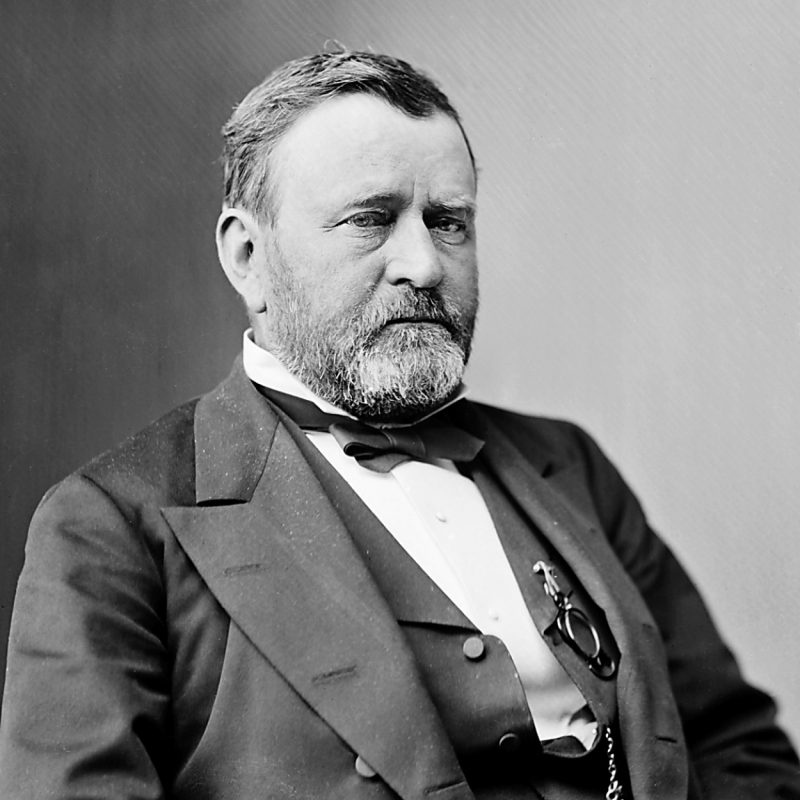
vietwiki.vn 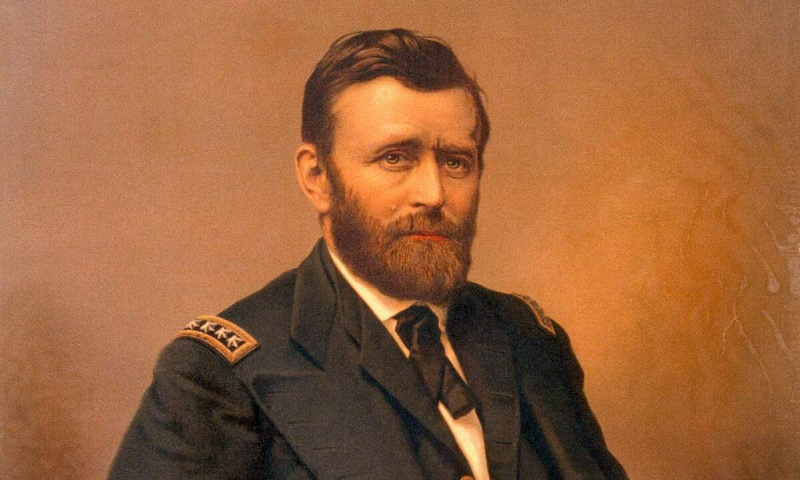
vnexpress.net












